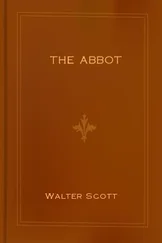Walter Scott - The Betrothed
Здесь есть возможность читать онлайн «Walter Scott - The Betrothed» весь текст электронной книги совершенно бесплатно (целиком полную версию без сокращений). В некоторых случаях можно слушать аудио, скачать через торрент в формате fb2 и присутствует краткое содержание. Год выпуска: 2004, Жанр: Старинная литература, на английском языке. Описание произведения, (предисловие) а так же отзывы посетителей доступны на портале библиотеки ЛибКат.
- Название:The Betrothed
- Автор:
- Жанр:
- Год:2004
- ISBN:нет данных
- Рейтинг книги:3 / 5. Голосов: 1
-
Избранное:Добавить в избранное
- Отзывы:
-
Ваша оценка:
- 60
- 1
- 2
- 3
- 4
- 5
The Betrothed: краткое содержание, описание и аннотация
Предлагаем к чтению аннотацию, описание, краткое содержание или предисловие (зависит от того, что написал сам автор книги «The Betrothed»). Если вы не нашли необходимую информацию о книге — напишите в комментариях, мы постараемся отыскать её.
The Betrothed — читать онлайн бесплатно полную книгу (весь текст) целиком
Ниже представлен текст книги, разбитый по страницам. Система сохранения места последней прочитанной страницы, позволяет с удобством читать онлайн бесплатно книгу «The Betrothed», без необходимости каждый раз заново искать на чём Вы остановились. Поставьте закладку, и сможете в любой момент перейти на страницу, на которой закончили чтение.
Интервал:
Закладка:
"Thou hast asked what I can hardly grant, my friend," answered De Lacy—"Thou art a minstrel, art thou not?"
"An unworthy graduate of the Gay Science, my lord," said the musician; "yet let me say for myself, that I will not yield to the king of minstrels, Geoffrey Rudel, though the King of England hath given him four manors for one song. I would be willing to contend with him in romance, lay, or fable, were the judge to be King Henry himself."
"You have your own good word, doubtless," said De Lacy; "nevertheless, Sir Minstrel, thou goest not with me. The Crusade has been already too much encumbered by men of thy idle profession; and if thou dost add to the number, it shall not be under my protection. I am too old to be charmed by thy art, charm thou never so wisely."
"He that is young enough to seek for, and to win, the love of beauty," said the minstrel, but in a submissive tone, as if fearing his freedom might give offence, "should not term himself too old to feel the charms of minstrelsy."
The Constable smiled, not insensible to the flattery which assigned to him the character of a younger gallant. "Thou art a jester," he said, "I warrant me, in addition to thy other qualities."
"No," replied the minstrel, "it is a branch of our profession which I have for some time renounced—my fortunes have put me out of tune for jesting."
"Nay, comrade," said the Constable, "if thou hast been hardly dealt within the world, and canst comply with the rules of a family so strictly ordered as mine, it is possible we may agree together better than I thought. What is thy name and country? thy speech, methinks, sounds somewhat foreign."
"I am an Armorican, my lord, from the merry shores of Morbihan; and hence my tongue hath some touch of my country speech. My name is Renault Vidal."
"Such being the case, Renault," said the Constable, "thou shalt follow me, and I will give orders to the master of my household to have thee attired something according to thy function, but in more orderly guise than thou now appearest in. Dost thou understand the use of a weapon?"
"Indifferently, my lord," said the Armorican; at the same time taking a sword from the wall, he drew, and made a pass with it so close to the Constable's body as he sat on the couch, that he started up, crying, "Villain, forbear!"
"La you! noble sir," replied Vidal, lowering with all submission the point of his weapon—"I have already given you a proof of sleight which has alarmed even your experience—I have an hundred other besides."
"It may be so," said De Lacy, somewhat ashamed at having shown himself moved by the sudden and lively action of the juggler; "but I love not jesting with edge-tools, and have too much to do with sword and sword-blows in earnest, to toy with them; so I pray you let us have no more of this, but call me my squire and my chamberlain, for I am about to array me and go to mass."
The religious duties of the morning performed, it was the Constable's intention to visit the Lady Abbess, and communicate, with the necessary precautions and qualifications, the altered relations in which he was placed towards her niece, by the resolution he had been compelled to adopt, of departing for the Crusade before accomplishing his marriage, in the terms of the precontract already entered into. He was conscious that it would be difficult to reconcile the good lady to this change of measures, and he delayed some time ere he could think of the best mode of communicating and softening the unpleasant intelligence. An interval was also spent in a visit to his nephew, whose state of convalescence continued to be as favourable, as if in truth it had been a miraculous consequence of the Constable's having complied with the advice of the Archbishop.
From the lodging of Damian, the Constable proceeded to the convent of the Benedictine Abbess. But she had been already made acquainted with the circumstances which he came to communicate, by a still earlier visit from the Archbishop Baldwin himself. The Primate had undertaken the office of mediator on this occasion, conscious that his success of the evening before must have placed the Constable in a delicate situation with the relations of his betrothed bride, and willing, by his countenance and authority, to reconcile the disputes which might ensue. Perhaps he had better have left Hugo de Lacy to plead his own cause; for the Abbess, though she listened to the communication with all the respect due to the highest dignitary of the English Church, drew consequences from the Constable's change of resolution which the Primate had not expected. She ventured to oppose no obstacle to De Lacy's accomplishment of his vows, but strongly argued that the contract with her niece should be entirely set aside, and each, party left at liberty to form a new choice.
It was in vain that the Archbishop endeavoured to dazzle the Abbess with the future honours to be won by the Constable in the Holy Land; the splendour of which would attach not to his lady alone, but to all in the remotest degree allied to or connected with her. All his eloquence was to no purpose, though upon so favourite a topic he exerted it to the utmost. The Abbess, it is true, remained silent for a moment after his arguments had been exhausted, but it was only to consider how she should intimate in a suitable and reverent manner, that children, the usual attendants of a happy union, and the existence of which she looked to for the continuation of the house of her father and brother, could not be hoped for with any probability, unless the precontract was followed by marriage, and the residence of the married parties in the same country. She therefore insisted, that the Constable having altered his intentions in this most important particular, the fiancailles should be entirely abrogated and set aside; and she demanded of the Primate, as an act of justice, that, as he had interfered to prevent the bridegroom's execution of his original purpose, he should now assist with his influence wholly to dissolve an engagement which had been thus materially innovated upon.
The Primate, who was sensible he had himself occasioned De Lacy's breach of contract, felt himself bound in honour and reputation to prevent consequences so disagreeable to his friend, as the dissolution of an engagement in which his interest and inclinations were alike concerned. He reproved the Lady Abbess for the carnal and secular views which she, a dignitary of the church, entertained upon the subject of matrimony, and concerning the interest of her house. He even upbraided her with selfishly preferring the continuation of the line of Berenger to the recovery of the Holy Sepulchre, and denounced to her that Heaven would be avenged of the shortsighted and merely human policy, which postponed the interests of Christendom to those of an individual family.
After this severe homily, the Prelate took his departure, leaving the Abbess highly incensed, though she prudently forbore returning any irreverent answer to his paternal admonition.
In this humour the venerable lady was found by the Constable himself, when with some embarrassment, he proceeded to explain to her the necessity of his present departure for Palestine.
She received the communication with sullen dignity; her ample black robe and scapular seeming, as it were, to swell out in yet prouder folds as she listened to the reasons and the emergencies which compelled the Constable of Chester to defer the marriage which he avowed was the dearest wish of his heart, until after his return from the Crusade, for which he was about to set forth.
"Methinks," replied the Abbess, with much coldness, "if this communication is meant for earnest,—and it were no fit business— I myself no fit person,—for jesting with—methinks the Constable's resolution should have been proclaimed to us yesterday before the fiancailles had united his troth with that of Eveline Berenger, under expectations very different from those which he now announces."
Читать дальшеИнтервал:
Закладка:
Похожие книги на «The Betrothed»
Представляем Вашему вниманию похожие книги на «The Betrothed» списком для выбора. Мы отобрали схожую по названию и смыслу литературу в надежде предоставить читателям больше вариантов отыскать новые, интересные, ещё непрочитанные произведения.
Обсуждение, отзывы о книге «The Betrothed» и просто собственные мнения читателей. Оставьте ваши комментарии, напишите, что Вы думаете о произведении, его смысле или главных героях. Укажите что конкретно понравилось, а что нет, и почему Вы так считаете.





